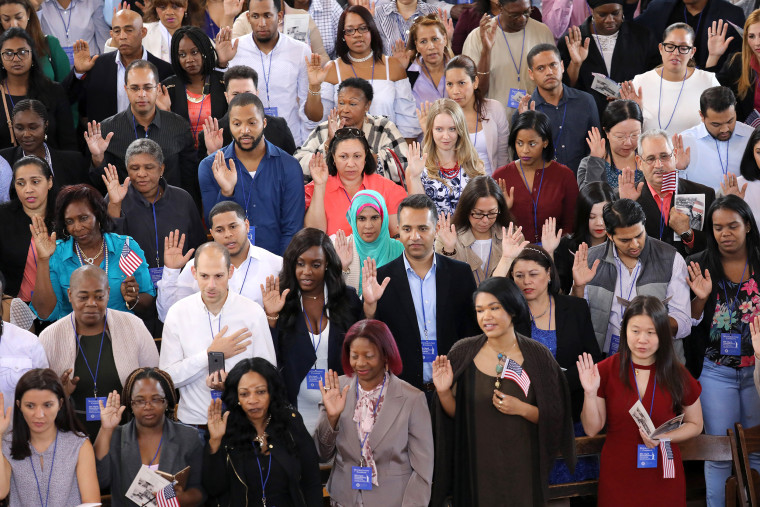The U.S. admitted a record number of Muslim refugees in fiscal year 2016, according to a Pew Research Center analysis of data from the State Department’s Refugee Processing Center.
Of the nearly 85,000 refugees who entered the country from Oct. 1, 2015, through Sept. 30, 2016, some 46 percent were Muslim, Pew found. The total — 38,901 — marks the highest number of Muslim refugees admitted since data on self-reported religious affiliations first became available in 2002.
A similar number of Christian refugees — 37,521, or 44 percent — were admitted over the course of the fiscal year.
This is the first time in a decade that a smaller percentage of refugees were Christian versus Muslim. The last time was fiscal year 2006, when a large number of Somali refugees came into the U.S., according to Pew.
Related: Obama: U.S. Can Meet Goal of Accepting 10,000 Syrian Refugees

Somalia (9,012 refugees) and Syria (12,486 refugees), were the source of more than half of the Muslim refugees who came in during this fiscal year. The rest, Pew said, came from Iraq (7,853), Myanmar (3,145), Afghanistan (2,664) and other countries (3,741).
Last year, amid the ongoing war in Syria, the Obama administration set a goal of accepting 10,000 Syrian refugees in the U.S. That goal was met at the end of August.
"On behalf of the President and his Administration, I extend the warmest of welcomes to each and every one of our Syrian arrivals, as well as the many other refugees resettled this year from all over the world," Susan Rice, President Obama's national security adviser, said in a statement at the time.
{
"ecommerceEnabled": false
}Related: Can Governors Block Syrian Refugees? Probably Not
The process has been fraught with fears from some that by letting refugees in, the U.S. is becoming a safe haven for those with ties to terrorists.
Last November, following terror attacks in Paris, 30 U.S. governors threatened to prevent Syrian refugees from resettling in their states. Although they had no legal power to do so, the backlash set the tone for a broader debate over America's treatment of refugees.
Since then, three of those governors — Michigan's Rick Snyder, Massachusetts' Charlie Baker and Tennessee's Bill Haslam — have softened their positions and are now in favor of accepting Syrian refugees. That number may be higher: half of the governors who originally opposed resettlement in their states did not respond to repeated requests for comment.
In June, a federal court threw out a Texas lawsuit that had attempted to ban all Syrian refugees from resettling there. Other states had filed similar lawsuits, but have yet to succeed with them.
Obama has called it "shameful" and "not American" to reject Syrian refugees.
